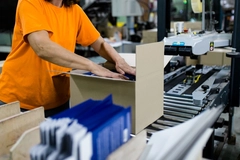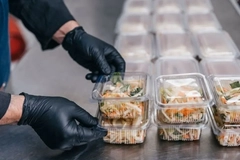Sweet Enough: why our kids don't need more sugar

Most of us know that there are many reasons why we should limit sweets in our children's diets.
The problem being, sugar is almost everywhere. On average, Australians consume 40kilograms of refined sugar per person; equivalent to 22 teaspoons of sugar daily. Where does it all come from?
The Sunday Age newspaper investigated sugar sources, revealing that the amount of sugar added to popular grocery items is rising. This is despite at least 2 decades of healthy eating campaigns and increasing incidences of obesity and diabetes Sugar preserves foods, and is added to groceries for added flavour, texture and sheen. While we might believe we're giving our families a low-sugar diet, sugar can even be found in savoury items such as pesto. In every tablespoon of tomato sauce we eat, we will also ingest 1 teaspoon of sugar. This can amount to lots if a little heavy handed with the sauce bottle!
- Sucrose – refined crystalised sugar, containing glucose and fructose
- Lactose – milk sugars
- Maltose – a simple sugar sourced from the starch in grains
- Dextrose – also known as glucose
- Maltodextrin – a processed sugar made from a combination of matose and dextrose
- Fructose – sugar refined from fruit
- Brown sugar – refined sugar which is coloured with caramel or molasses
- Raw sugar – sugar that is less refined, thus still containing some of its molasses
- Corn syrup – corn starch syrup which includes glucose, maltose and dextrose
- High-fructose corn syrup – syrup which is mostly fructose and highly concentrated
The above 2 syrups are often made using high temperatures, making them highly refined but also very inexpensive and therefore popular with food manufacturers.
Sugar increases insulin levels affecting blood sugar balance, and the release of growth hormones which can potentially diminish optimal immune activity. When insulin levels are imbalanced, the potential for disease increases, including susceptibility to colds and flus, diabetes, weight gain, osteoporosis, cardiovascular disease and more.
When it rushes through small bodies, sugar can promote hyperactivity. It can also compete with mineral absorption for growing teeth and bones and increase moodiness (especially if delivered to the body in a cocktail of other nasties, such as what happens when consuming fizzy soft drinks daily). Tooth decay is also a big factor to consider.
Although it is natural and unprocessed honey is still regarded as sugar, because 96% of its constituents are simple sugars (fructose, glucose and sucrose). In fact, honey is higher in calories than all other sugars, and may contain traces of pesticides used on flowers if the honey is farmed commercially. The amount of nutrients and beneficial enzymes left in honey vary greatly. Hence it is best to buy raw, unheated varieties and limit intake.
Children only get a 'taste' for sugar if they're given it. At no other time in life are their palates so pure and receptive to the wonders of natural flavours. Grated carrot and sultanas in a sandwhich in place of sugary jam is just as delicious to a child, with the benefits of betacarotene and other vitamins and minerals. When baking cakes soak dates in warm water and mash them as a source of sweetening. All dried fruits are high in fructose, however dates at least deliver trace amounts of minerals such as potassium. If your child insists on chocolate flavouring in milk, try adding half a teaspoon of apple juice concentrate and a little cinnamon. They might find these different taste sensations a little strange at first but if you persist, they can begin to love whatever new flavours you offer them. Be mindful of packaged savoury items like olives in a jar which are soaked in salty, sweet water, and read labels on savoury pastries and packaged bread, choosing the unsweetneed versions. If your child is milk-sensitive and has soya milk, buy the malt-free options because the sugar content in soya milk can be very high.
Providing your child has a healthy active life, a little sugar here or there shouldn't harm them. However it pays to keep sweets to a minimum and keep offering sugar-free snacks, so they aren't expecting sugar-hits whenever they eat. The perfect suggestion: a Healtheries Kidscare Fruit Smash.











